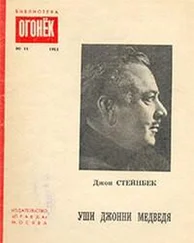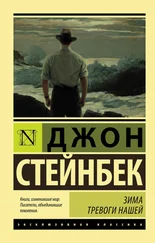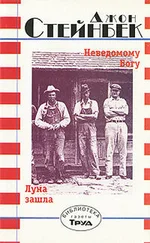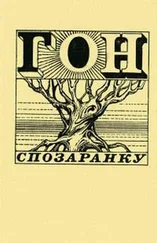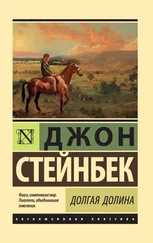Джон Стейнбек - Cup of Gold [Золотая чаша]
Здесь есть возможность читать онлайн «Джон Стейнбек - Cup of Gold [Золотая чаша]» — ознакомительный отрывок электронной книги совершенно бесплатно, а после прочтения отрывка купить полную версию. В некоторых случаях можно слушать аудио, скачать через торрент в формате fb2 и присутствует краткое содержание. Год выпуска: 1929, Жанр: Прочие приключения, на английском языке. Описание произведения, (предисловие) а так же отзывы посетителей доступны на портале библиотеки ЛибКат.
- Название:Cup of Gold [Золотая чаша]
- Автор:
- Жанр:
- Год:1929
- ISBN:нет данных
- Рейтинг книги:5 / 5. Голосов: 1
-
Избранное:Добавить в избранное
- Отзывы:
-
Ваша оценка:
- 100
- 1
- 2
- 3
- 4
- 5
Cup of Gold [Золотая чаша]: краткое содержание, описание и аннотация
Предлагаем к чтению аннотацию, описание, краткое содержание или предисловие (зависит от того, что написал сам автор книги «Cup of Gold [Золотая чаша]»). Если вы не нашли необходимую информацию о книге — напишите в комментариях, мы постараемся отыскать её.
Cup of Gold [Золотая чаша] — читать онлайн ознакомительный отрывок
Ниже представлен текст книги, разбитый по страницам. Система сохранения места последней прочитанной страницы, позволяет с удобством читать онлайн бесплатно книгу «Cup of Gold [Золотая чаша]», без необходимости каждый раз заново искать на чём Вы остановились. Поставьте закладку, и сможете в любой момент перейти на страницу, на которой закончили чтение.
Интервал:
Закладка:
Merlin was shaking with a silent glee.
"Oh, Robert! Robert! why must you blame the world when it protects itself against you? I think God and the world are one to you. If there were ten people in the valley below who liked the look of rose leaves on the ground, you would only be a very queer person, interesting and something of a curiosity. They would bring strangers to your house on Sunday afternoons and exhibit you. But, since there are none, of course you are a radical who must be locked up or hanged. Judgment of insanity is truly the hanging of a man's mind If it be whispered of him that his brain wanders, then nothing he can say will matter to any one ever again, except as a thing to laugh at.
"Can you not see, Robert? People have so often been hurt and trapped and tortured by ideas and contraptions which they did not understand, that they have come to believe all things passing their understanding are vicious and evil-things to be stamped out and destroyed by the first corner. They only protect themselves, thus, against the ghastly hurts that can come to them from little things grown up."
"I know," said Robert; "I know all that, and I do not cry out against it. My great complaint is that the only possession I carry about with me is a bag of losses. I am the owner solely of the memory of things I used to have. Perhaps it is well-for I seem to love them more now that I have them not. But I cannot understand how this fortune may be born hidden in a chosen few. My own son assaults and keeps each one of his desires, if the winds tell truth."
"You had a son, Robert; I remember now. I think I prophesied that he would rule some world or other if he did not grow up."
"And so he does. News of him comes out of the south on a light, inaccurate wind. Rumor has wings like bats. It is said that he rules a wild race of pirates; that he has captured towns and pillaged cities. The English are elated, and call him a hero and a patriotic man-and so do I, sometimes.
But I fear if I were a Spaniard, he would be only a successful robber. I have heard-though I do not believe it; I do not want to believe it-that he has tortured prisoners."
"So," Merlin mused, "he has come to be the great man he thought he wanted to be. If this is true, then he is not a man. He is still a little boy and wants the moon. I suppose he is rather unhappy about it. Those who say children are happy, forget their childhood. I wonder how long he can stave off manhood.
"Robert, have you seen those great black ants which are born with wings? They fly a day or two, then drop their wings and fall upon the ground to crawl for all their lives.
I wonder when your son will drop his wings. Is it not strange, Robert, how, among men, this crawling is revered-how children tear at their wings, so they may indulge in this magnificent crawling?"
"What makes boys grow to men?" Robert asked. "What circumstance rots out their wing roots?"
"Why, a great many never have wings, and some tear them off for themselves; some are sudden things and others very tedious. I do not know them all, but mine was ridicule-a kind of self-ridicule. I loved a small girl in the valley, and I suppose she was beautiful. I hope I was handsome. I made a song for her and called her the Bride of Orpheus. I rather fancied myself Orpheus, then. But she considered marriage with a deity as some manner of a crime against nature. She lectured me. Every man, so she said, owed it to something or other-his family or his community or himself, I forget just what-to make a success of himself. She was vague as to the nature of success, but she made it very plain that song was not a structure of success. And deities she abhorred, especially pagan deities. There was a man with lands and houses who was reassuringly human. Even in my old age I think spitefully that he was deplorably human.
So they were married, and ridicule gnawed off my wings.
"I paraded murder and suicide and fields of glory through my mind to fight this little paining ridicule. In my shame, I thought to lock up my songs from the world, so that never again might people hear them.
The world did not even know when I was gone. No little groups of people came to plead with me to return-and I had promised the ridicule they would. My bitten wings dropped; I was a man and did not want the moon. And when I tried to sing again, my voice had grown husky like a drover's voice, and my songs were thick with forethoughts and plannings."
"I wonder how I grew," Robert said. "I do not remember.
Perhaps my youth went out of me sticking to coins-or perhaps it lives in those lands I used to dream of. But is swimming in his dreams, and sometimes I am very jealous of him.
"Do you know, Merlin, there is a thing which has appeared strange to me. My mother, Gwenliana, thought she had the second sight, and we humored her because she took such joy of it. And on the night that Henry went away, she cast a picture of his life. Merlin, nearly all her words have come to be the truth. Can these thoughts have come on her like a series of bright paintings? It is a strange, unlikely thing."
"Perhaps she read his desire, Robert, and sensed the strength of his desire. I taught old Gwenliana many things which had to do with magic; she was very apt at reading signs-and faces."
Old Robert rose to stretch himself. "Ah, well-I must be going now. It takes a weary time for such an aged man to be getting down the path. It will be night when I am home again. Here is William coming with his pick which was an appendage born to him. I will be going down a bit in his company and learning the way of things at London. You must love words, Merlin, to be making so many of them; and I must love pain, to be engendering it against myself.
"And, Merlin, I think you are a trickster and a fraud; every time I have gone away from you it has been with the conviction that you have said mighty things, yet, on thinking, I could never recall any of them. I think you work a subtle conjuring with the soft voice of you, and your harps."
And as he went down the path, the hanging harps crooned after him the Sorcerer's Farewell.
CHAPTER IV
PANAMAwas a great, lovely city in 1670 when Henry Morgan determined on its destruction; a rich, strong city, and justly called the Cup of Gold. No place in all the raw New World could compare with it in beauty and in wealth.
Over a century before, Balboa had come to the shore of a new ocean. He dressed himself in scoured armor and waded into the Pacific until the gentle water washed his thighs. Then, in an oration, he firmly addressed the sea and claimed all lands it broke on for the crown of Spain. He demanded that the water be tractable and loyal, for it was to be the honored privatelakeof Castile and Aragon.
Behind Balboa, on the shore, huddled a small grass village of the Indians, and its name was Panama. In the native tongue this signified a place of good fishing. When the soldiers of Spain put torch to the litter of huts, and in its place built a new town, they kept the old name, Panama, which is a song. And soon the meaning justified itself, for out of this little town the nets of Spain were flung to the four directions.
Pedrarias carried the nets to the north and enmeshed the cities of the ancient Mayan race. He was enabled, of his fishing, to send strangely wrought serpents and frightful images and tiny graven insects, all of gold, to Panama. When there were no more ornaments to gather, when the temples were vacant boxes of stone, then Pedrarias threw the net of Spain over the people and drove them into the mines under his whips.
Pizarro sailed to the southward with horses and armored men, and the powerful Inca nation fell before him. He killed the rulers and ripped the life from the governmental structure. Then diamonds, plates from the temple walls, symbols of the sun in gold, and ceremonial golden shields were shipped to Panama.
Читать дальшеИнтервал:
Закладка:
Похожие книги на «Cup of Gold [Золотая чаша]»
Представляем Вашему вниманию похожие книги на «Cup of Gold [Золотая чаша]» списком для выбора. Мы отобрали схожую по названию и смыслу литературу в надежде предоставить читателям больше вариантов отыскать новые, интересные, ещё непрочитанные произведения.
Обсуждение, отзывы о книге «Cup of Gold [Золотая чаша]» и просто собственные мнения читателей. Оставьте ваши комментарии, напишите, что Вы думаете о произведении, его смысле или главных героях. Укажите что конкретно понравилось, а что нет, и почему Вы так считаете.
![Джон Стейнбек Cup of Gold [Золотая чаша] обложка книги](/books/181372/dzhon-stejnbek-cup-of-gold-zolotaya-chasha-cover.webp)
